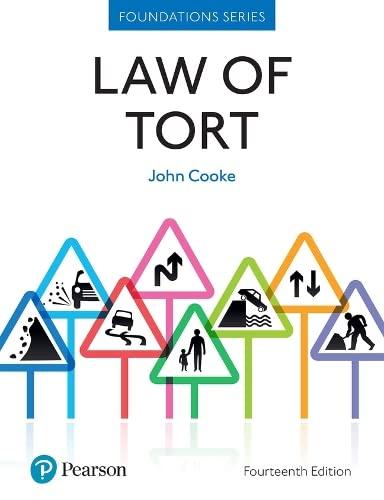Question
Are the following statements true or false? Explain. 1) An agency must always involve two important parties. 2) A principal is always liable vicariously for
Are the following statements true or false? Explain.
1) An agency must always involve two important parties.
2) A principal is always liable vicariously for the tortuous acts of the agent.
3) Ratification validates past acts of the agent back to the time the contract was entered into by the agent on behalf of the principal.
4) An agency by estoppels arises by operation of law.
5) It is not essential for the agent to act within the limits of his authority
6) Ostensible authority is where the principal represents by his actions to a third party that the agent has authority to enter into contract on behalf of the principal when in actual fact the agent has not been given such authority by the principal.
7) No consideration is necessary to create an agency.
8) As between the principal and third persons, any person may become an agent.
9) A, an agent engaged in carrying on for B a business, in which it is the custom to invest from time to time, at interest, the moneys which may be in hand, omits to make the investment. There is no obligation in law for A to make good to B the interest usually obtained by such investments.
10) A empowers B to let A's house. Afterwards, A lets it himself. This is an implied revocation of B's authority.
Step by Step Solution
There are 3 Steps involved in it
Step: 1

Get Instant Access to Expert-Tailored Solutions
See step-by-step solutions with expert insights and AI powered tools for academic success
Step: 2

Step: 3

Ace Your Homework with AI
Get the answers you need in no time with our AI-driven, step-by-step assistance
Get Started


